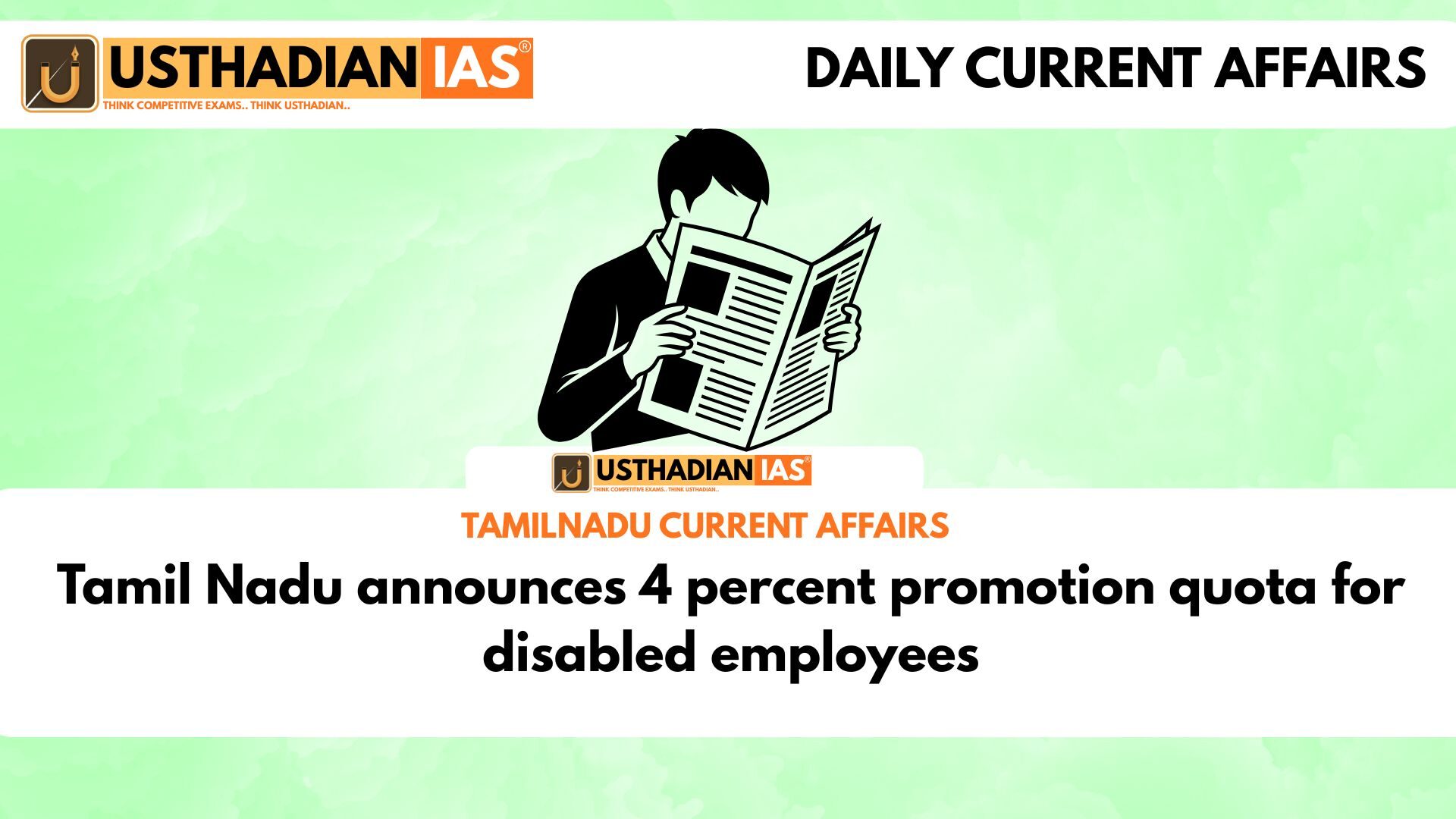Government move for inclusive promotions
Tamil Nadu announces 4 percent promotion quota for disabled employees: The Tamil Nadu government has decided to provide a 4% reservation in promotion to its government employees who fall under the category of benchmark disabilities. This step aligns with the state’s broader efforts to ensure representation and career growth opportunities for persons with disabilities in public service roles.
Limited to specific posts only
This reservation applies only to certain jobs officially listed by the government. These posts must have at least six employees in the same cadre, ensuring a fair and manageable implementation. Also, only those roles that fall under Pay Level 25 or below are eligible, focusing the policy on junior and mid-level positions in government departments.
Applicable in promotions and transfers
This isn’t limited just to climbing the ladder through promotions. The rule also supports recruitment by transfer, which involves moving from lower pay levels to higher ones within the government system. It gives employees with disabilities a dual path to progress, whether through internal transfers or standard promotional routes.
Breakdown of 4 percent quota
The 4% reservation is thoughtfully split across various types of disabilities to maintain fairness:
- 1% is allotted to those with blindness or low vision
- Another 1% is for individuals who are deaf or hard of hearing
- 1% covers those with locomotor disabilities, such as cerebral palsy, dwarfism, leprosy-cured persons, and those affected by acid attacks or muscular dystrophy
This structured allocation ensures that multiple disability groups get due representation within the system.
Exemption possibility under the law
Interestingly, the policy also includes a provision that allows the state to exempt certain government offices from following this reservation rule. This is allowed under Section 34 of the Rights of Persons with Disabilities Act, 2016, which gives states limited power to opt out of certain mandates when necessary. While this clause introduces flexibility, it may also reduce the uniform impact of the policy.
Important static facts to note
The Rights of Persons with Disabilities Act, 2016 expanded the list of recognised disabilities and strengthened legal protections. Under this law, benchmark disabilities refer to individuals with at least 40% impairment. The term Pay Level 25 is used to classify jobs, mainly in lower and middle ranks of government employment. Tamil Nadu has often led welfare efforts in the country through proactive and targeted reservation policies across different social groups.
Static Usthadian Current Affairs Table
| Topic | Details |
| State implementing the reservation | Tamil Nadu |
| Total reservation percentage | 4% |
| Policy covers | Promotion and recruitment by transfer |
| Eligibility | Benchmark disabilities |
| Pay level covered | Up to Pay Level 25 |
| Minimum cadre size required | More than five |
| Blindness and low vision reservation | 1% |
| Deaf and hard of hearing reservation | 1% |
| Locomotor disability and related conditions | 1% |
| Legal exemption clause | Section 34, RPwD Act 2016 |








